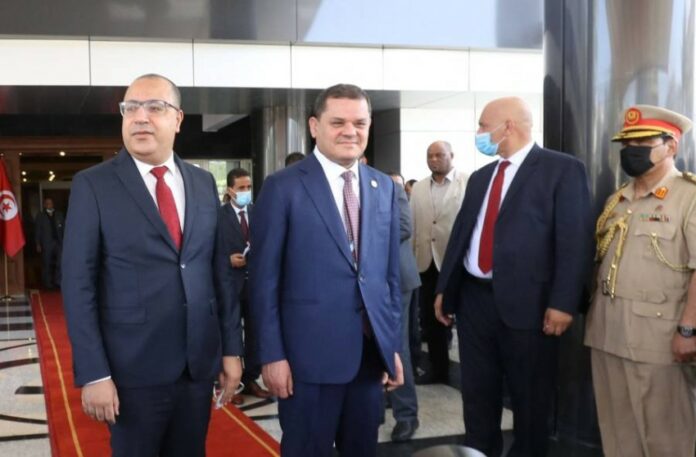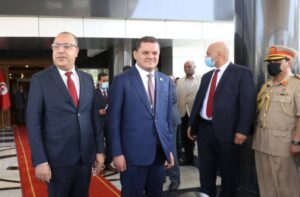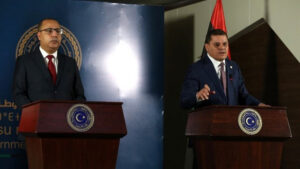

May 22, 2021
The head of the Libyan government of national unity, Abdel Hamid Al-Dbeiba, announced in a joint meeting with his Tunisian counterpart Hishem El-Meshishi today, Saturday May 22, 2021, that a multi-clause agreement has been signed, in its entirety, to further facilitate the movement of trade exchange and the movement of citizens between the two countries. The agreements include aspects of technical and technological cooperation in the fields of land, sea and air transport.
The agreements also include provisions for activating some joint committees in the land transport sector, vehicle transportation, and maritime transport in order to enhance commercial and human movement between the two countries, adding, “We will not spare the two peoples to take any measures that improve the economic situation and increase the level of development.”
The Libyan prime minister added, “We will work continuously to activate the agreements signed and those that will be signed and review what needs reviewing.”
Dabaiba said that Libya will send some equipment to some hospitals in southern Tunisia, and that it will also help Tunisia if vaccines are widely available.
The Libyan Prime Minister announced the settlement of the conditions of Tunisian workers in Libya who are currently in Tunisia and the renewal of residency and work contracts through joint committees between the Ministry of Interior and Labor.
Meshishi Announces the Cancellation of a Procedure that Concerns Libyans upon Entering Tunisia

Hishem Meshishi considered that what unites Tunisia and Libya goes beyond the diplomatic and political frameworks and trade exchanges, despite their importance. What binds the two countries transcends these frameworks to the existing civilizational and human ties between them, which are strengthened whatever the circumstances.
He appreciated the Libyan government’s desire to raise the level of bilateral cooperation as well as settle the status of Tunisian workers in Libya and prepare to attract more of them during the coming period, which is evidence of the Libyan side’s belief in the importance of Tunisian human resources.
And he indicated that Tunisia is ready to lift the restrictions imposed on the entry of goods, people, and transfers, and that the procedure for the similarity of names will be abolished when entering Tunisia as this procedure has become a thing of the past.
He stressed that Tunisia will facilitate the entry of the Libyan citizen to Tunisia, which will also lift the restrictions on the ownership of Libyans, especially since peoples nowadays deplore the mentality of restrictions; therefore, the Libyan citizen will work in Tunisia in a comfortable way.










